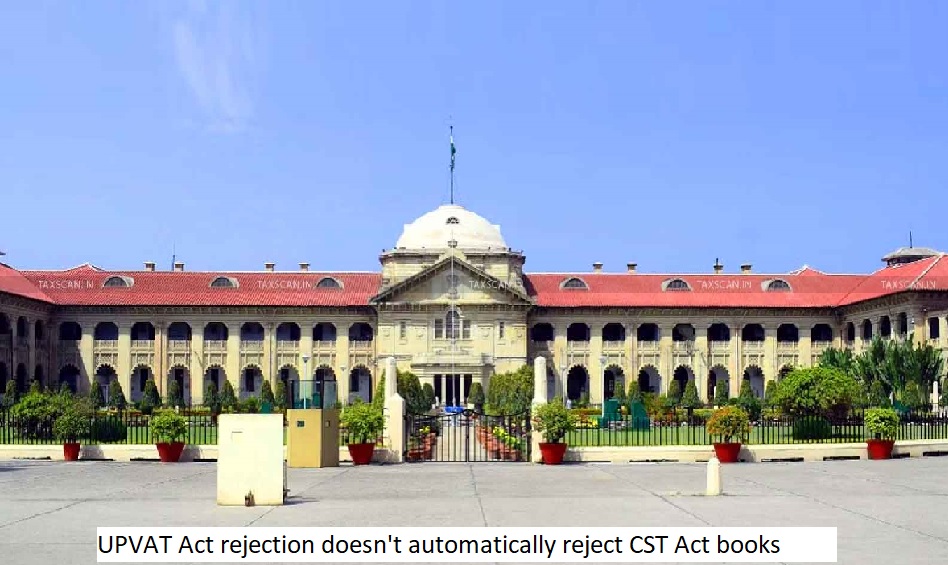


The Allahabad High Court has emphasized that the rejection of books of accounts under local laws does not automatically warrant the rejection of books under the Central Sales Tax Act, particularly in the absence of substantive evidence. Justice Piyush Agrawal asserted that the mere rejection of accounts under local sales laws should not serve as the sole basis for dismissing accounts under the Central Sales Tax Act.
The case involved a registered dealer, the revisionist, operating under the UP VAT Act and primarily engaged in the trade of ready-made garments since the Assessment Year 2014-15. A survey conducted at the business premises during which the business was closed but carpentry work was ongoing revealed documents from the previous assessment year that belonged to the previous tenant. The revisionist was not present during the survey.
Citing precedents such as the Allahabad High Court's decisions in M/s R.D. Gupta and Company Vs. C.S.T. and Guru Prasad Roller Flour Mills Pvt. Limited Vs. Commissioner of Commercial Tax, U.P., the revisionist's counsel argued that the rejection of books under the UP VAT Act should not automatically lead to the rejection of books under the Central Sales Tax Act. It was emphasized that the rejection of local tax books does not imply a suppression of turnover under the Central Sales Tax Act.
The argument put forth was that without concrete evidence of suppression of turnover under the Central Sales Tax, any enhancement of turnover would be unjustified in legal terms. The court acknowledged that the revisionist's books of accounts had indeed been rejected under the UP VAT Act based on the survey. However, it noted that the enhancement of turnover had been set aside by the court.
The court relied on the decision in M/s R.D. Gupta, where it was established that the rejection of books and disclosed turnover under the Central Sales Tax Act cannot be solely based on the rejection of books of accounts under local tax laws. The court reiterated that the enhancement of turnover under the Central Sales Tax Act must have a valid and substantiated basis, independent of the rejection of local tax books.
Additionally, the court referred to the case of Guru Prasad Roller Flour Mills Pvt Limited, emphasizing that the rejection of books under the UP VAT Act does not automatically lead to the conclusion that the assessee had indeed entered into Central Sales. The court stressed that such conclusions must be supported by material available on record.
In the present case, the court observed that the authorities below had failed to provide any findings or present material on record to establish that the revisionist had engaged in any central sales. The lack of evidence supporting the claim of central sales, coupled with the precedents cited, led the court to conclude that the rejection of books under the UP VAT Act did not substantiate an automatic enhancement of turnover under the Central Sales Tax Act.
In essence, the court reiterated the principle that each tax law should be independently assessed, and the rejection of books under one law does not ipso facto justify similar action under another law, especially when there is a lack of substantive evidence supporting such a move. This decision underscores the importance of relying on specific evidence and material in each tax assessment rather than making assumptions based on actions taken under different tax laws.
TAGS: Allahabad High Court UP VAT Act Central Sales Tax Act Rejection of Books of Accounts Local Tax Laws Survey Ready-Made Garments